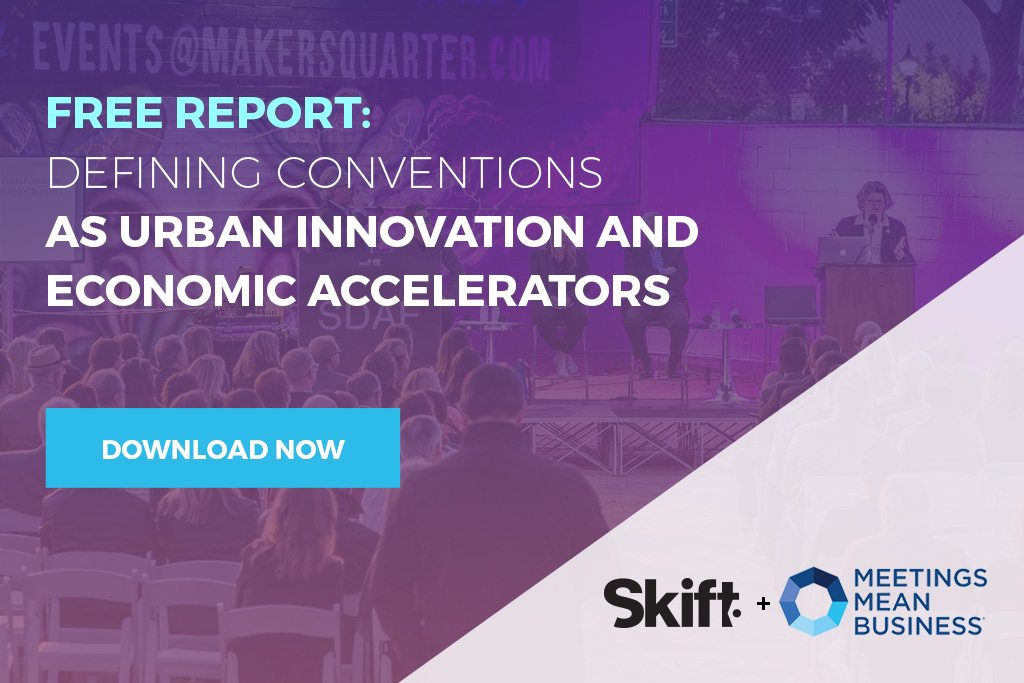Free Report: Defining Conventions as Urban Innovation and Economic Accelerators

Skift Take
This sponsored content was created in collaboration with a Skift partner.
The meetings and conventions industry is evolving into a global innovation distribution channel. Over the last decade, convention bureaus have been collaborating more strategically with their local and state governments, economic development agencies, academic and scientific institutions, and local business improvement districts to better leverage the value of conventions in their cities, especially those aligned with their regions’ high-priority growth sectors.
The collective goal among those private and public organizations is to attract more conventions in advanced and creative industries to help position their cities as economic and innovation accelerators, in an effort to attract outside corporate investment and talent more effectively in those industries.
The challenge is mapping and measuring those long-term impacts. Presently, most cities highlight the economic benefits of conventions based on the short-term hospitality and tourism spend during conventions, which are then extrapolated to show the overall impact on jobs and taxes in the region on an annual basis. However, in addition to that, there are many important long-term economic benefits, or “legacy impacts,” that conventions deliver to a city that are typically not included in traditional impact reports.
In this report you'll learn:
- The rise of the Convergence Economy and its impact on meeting strategy
- How convention bureaus are driving economic development
- Evaluating the long-term impacts of conventions beyond the visitor spend
This report was created collaboratively with our sponsor, Meetings Mean Business.




